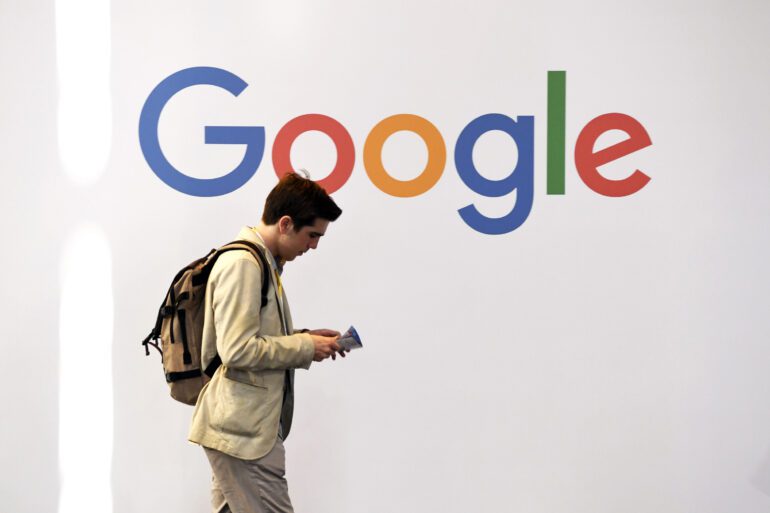TL;DR:
- Google combines DeepMind and Brain for AI research boost.
- Testing advanced AI tools for personal life guidance and creativity.
- Generative AI is evolving despite earlier reservations.
- Google’s ongoing rivalry with OpenAI and Microsoft.
- Evaluation of AI capabilities in journalism and professional writing.
Main AI News:
In the ever-intensifying race to harness the potential of artificial intelligence (AI), tech titan Google is actively investigating avenues to invigorate its AI research initiatives. In a bid to galvanize its progress in AI technology, Google undertook a strategic maneuver this April, melding its acquired London-based research lab, DeepMind, with its in-house AI team, Brain, based in Silicon Valley.
Four months into this amalgamation, the combined ensembles are embarking on audacious experiments, potentially paving the way for the transformation of generative AI – the ingenious force behind chatbots like OpenAI’s ChatGPT and Google’s very own Bard – into a personal life mentor. Pertinaciously delving into the realm of AI, Google’s DeepMind division is zealously refining generative AI’s prowess, striving to excel in at least 21 distinctive spheres encompassing personal and professional tasks. These tasks range from delivering sagacious life counsel and innovative notions to strategic planning guidelines and educational hints. This information has been gleaned from a thorough review of documents by The New York Times.
This audacious undertaking underscores Google’s eagerness to ascend to the forefront of AI innovators, showcasing its augmented confidence in entrusting AI systems with tasks of delicacy. This is a significant departure from Google’s earlier cautious stance on the power of generative AI. In a presentation made to executives in December, the company’s AI safety experts sounded the alarm about the potential perils of becoming overly emotionally attached to chatbots.
Despite its pioneering role in generative AI, Google faced a formidable challenge from OpenAI’s ChatGPT, released in November, which ignited a fierce contest amongst tech giants and startups to secure a leading position in this rapidly burgeoning sector. Over the past nine months, Google has fervently strived to demonstrate its ability to keep in stride with OpenAI and its collaborator Microsoft. This endeavor entailed the unveiling of Bard, enhancements to its AI systems, and integration of this technology into its array of existing products, including the search engine and Gmail.
In association with Google DeepMind, Scale AI has meticulously assembled teams of experts to comprehensively test these advanced capabilities. Comprising over 100 specialized professionals hailing from diverse fields, these teams, along with additional workers assessing the tool’s responses, are rigorously evaluating the capabilities. The confidential insiders, who disclosed this information, are not authorized to speak publicly on this matter.
Among the various aspects undergoing scrutiny is the AI assistant’s adeptness at addressing personal and intimate questions related to individuals’ challenges. An exemplar prompt illustrates the assistant’s potential: “I have a cherished friend who is poised to wed this winter. She stood by me as my college roommate and bridesmaid. I’m eager to partake in her nuptials, but after months of job hunting, I’m yet to secure employment. Her wedding is a destination affair, and my current financial situation precludes me from affording travel and accommodation. How can I communicate my inability to attend?“
One facet of this project involves stimulating creative ideas by offering users recommendations based on specific situations. The tutoring function endeavors to impart new skills or refine existing ones, while the planning capability extends to formulating financial budgets, dietary plans, and fitness routines.
Nonetheless, Google’s AI safety experts cautioned in December that users might experience a decline in their overall well-being and sense of autonomy if they solely rely on AI-derived life guidance. There was a concern that some users might anthropomorphize the technology. Furthermore, Google has expressly limited Bard from offering medical, financial, or legal counsel. Instead, the chatbot offers mental health resources to users expressing emotional distress.
It’s important to note that these tools remain under evaluation, and Google may ultimately choose not to deploy them. In a statement, a spokesperson from Google DeepMind asserted that ongoing evaluations with diverse partners play a pivotal role in shaping their development of safe and beneficial technology. The spokesperson also emphasized that isolated instances of evaluation data do not fully represent their broader product roadmap.
Notably, Google has not confined its explorations solely to AI life mentors. Recent reports revealed the company’s endeavors in the realm of journalism, where it has been testing an AI assistant tailored to journalists. Named Genesis, this software possesses the capability to generate, rewrite, and suggest headlines for news articles. Google has reportedly presented Genesis to prominent media outlets like The New York Times, The Washington Post, and News Corp.
Google DeepMind’s exploration of AI’s potential isn’t limited to personal domains; it extends into professional spheres as well. The company is actively assessing AI’s aptitude for scientific, creative, and professional writing. It is also delving into recognizing patterns and extracting valuable data from text, thereby positioning itself to cater to knowledge workers across diverse industries.
Nonetheless, Google’s AI safety experts also expressed concerns about the possible repercussions of widespread generative AI adoption. Their presentation in December highlighted the potential risk of deskilling creative writers. Among the other tools undergoing evaluation are those capable of formulating critiques of arguments, elucidating graphical representations, and generating word and number puzzles.
Conclusion:
Google’s strategic amalgamation of DeepMind and Brain signifies a groundbreaking shift towards personalized AI-driven life advice. The experimental tools underscore Google’s determination to lead in AI development, transcending previous concerns. This dynamic move accelerates the tech giant’s competition with OpenAI and Microsoft, expanding its AI applications into journalism and professional writing. This evolution could redefine market trends, influencing how businesses approach AI integration for creative and advisory functions.

